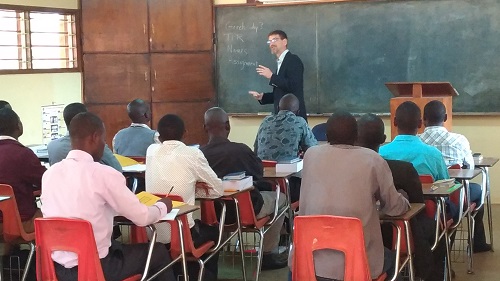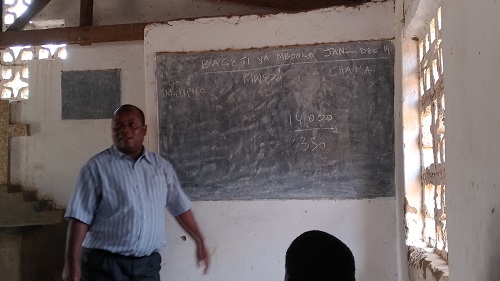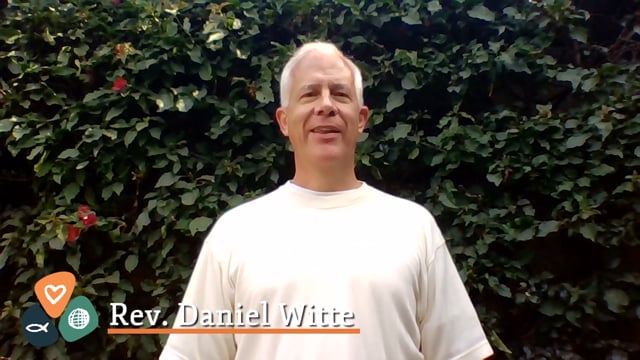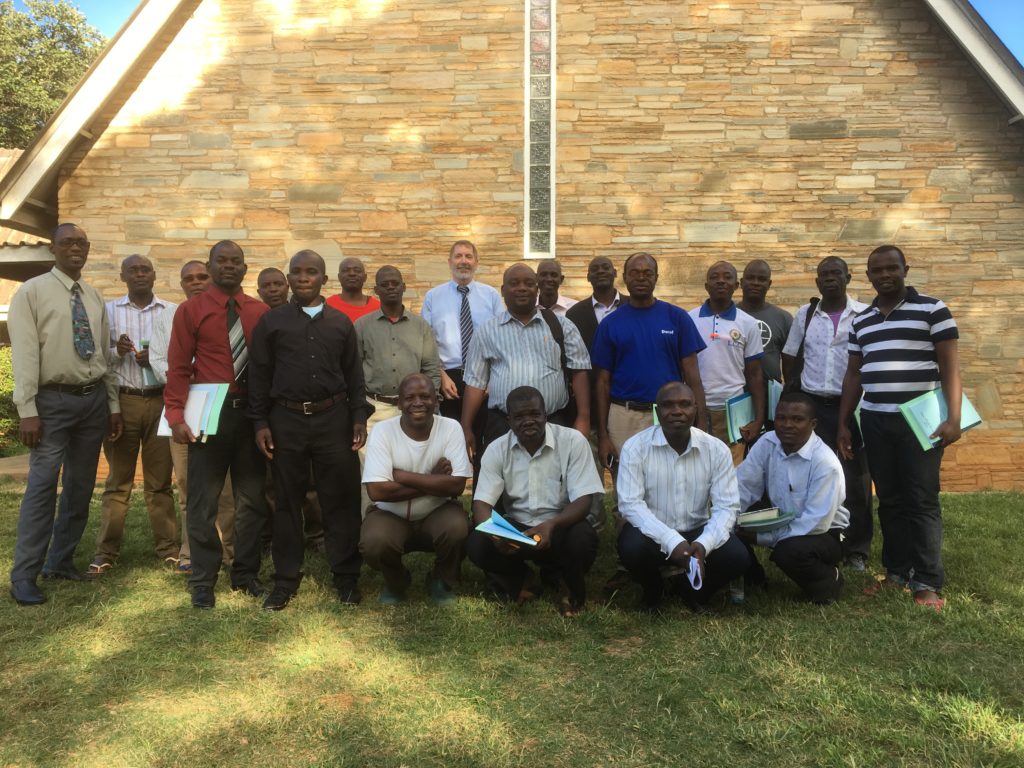Cross the River in a Crowd
“Cross the river in a crowd,” an African proverb says, “and the crocodile won’t eat you.”
That is, teamwork tends to work better than individual effort.
Recently Mr. Banda and Mr. Zulu, two veteran workmen for our mission, and I teamed up. From Lusaka, Zambia, we headed east together. We crossed the Luangwa River and drove all day to Chipata in Eastern Province.
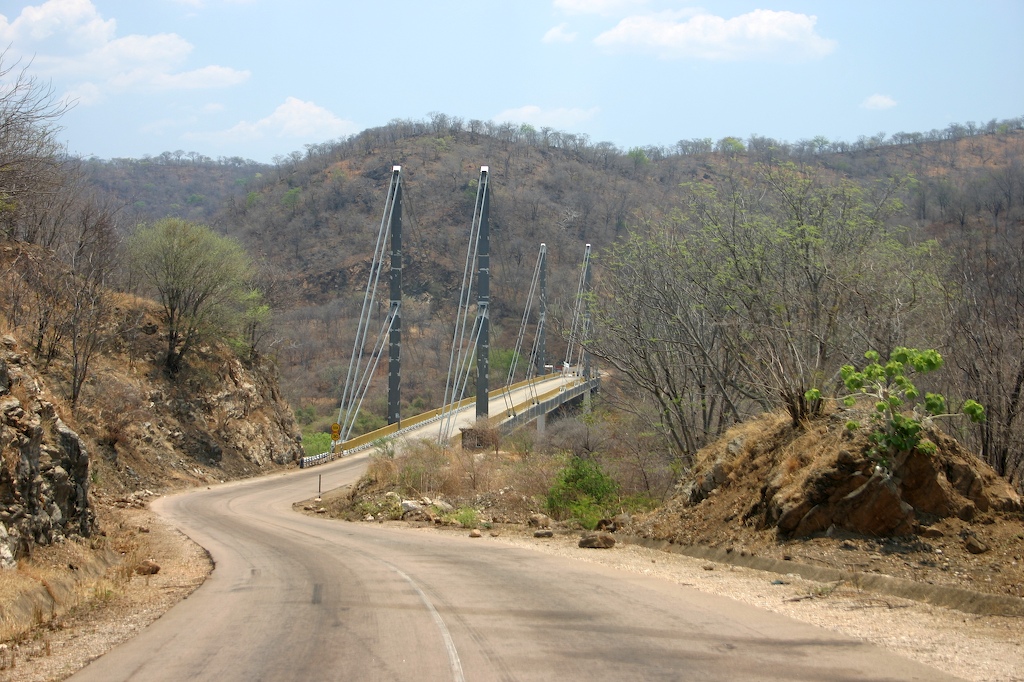
From Chipata the next two days we headed north to villages in the areas of Lundazi and Mfuwe. There we installed solar panel systems at the homes of Pastor Lewis Mbewe and Pastor Edward Nyirenda.
The workmen nailed together a simple shelf for the battery and inverter.

Here is what the system inside looked like, once hooked up.
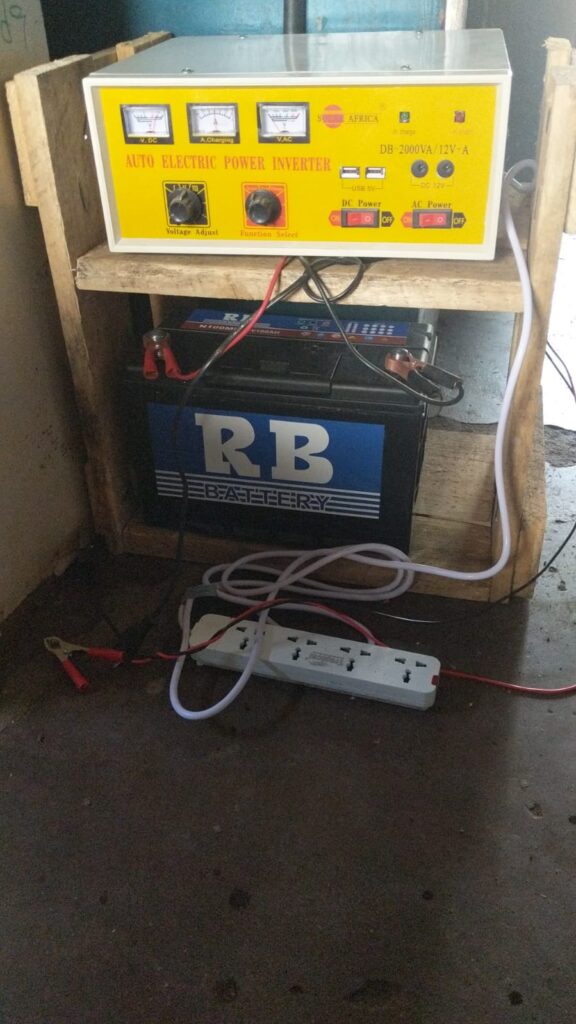
Mr. Banda and Mr. Zulu connected that system with wiring to a 120 watt solar panel on the roof.

The system also connects to a wall-mounted controller and to a small set of LED lights which we attached by clips to the exposed trusses inside the home. One light went outside.

We brought along a ladder for interior use, but outside our main ladder was our Land Cruiser.
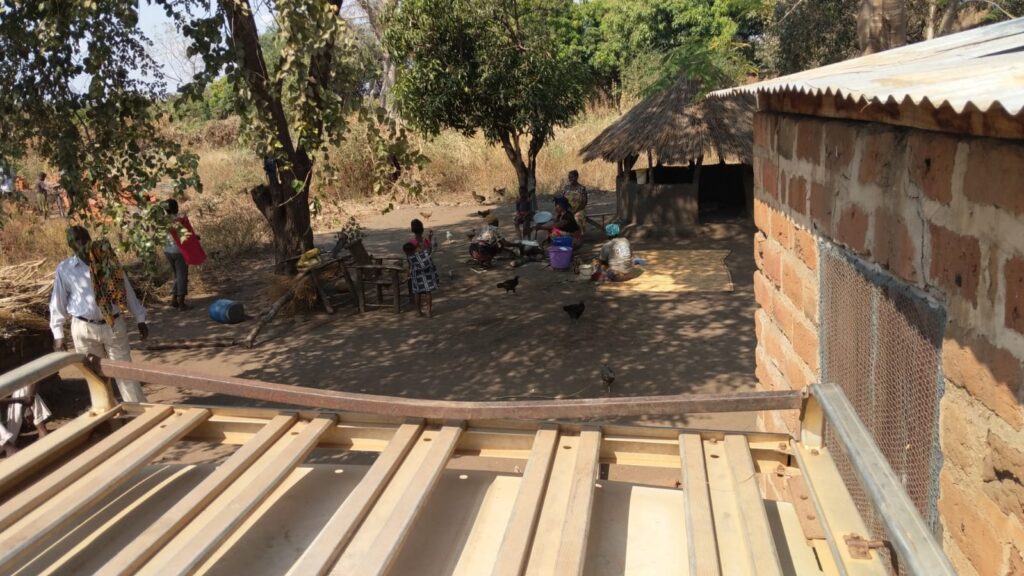
The week before we had done the same in two villages closer to Lusaka. For instance, here is a photo of Pastor Godfrey Matina (the tallest man) and members of his congregation.
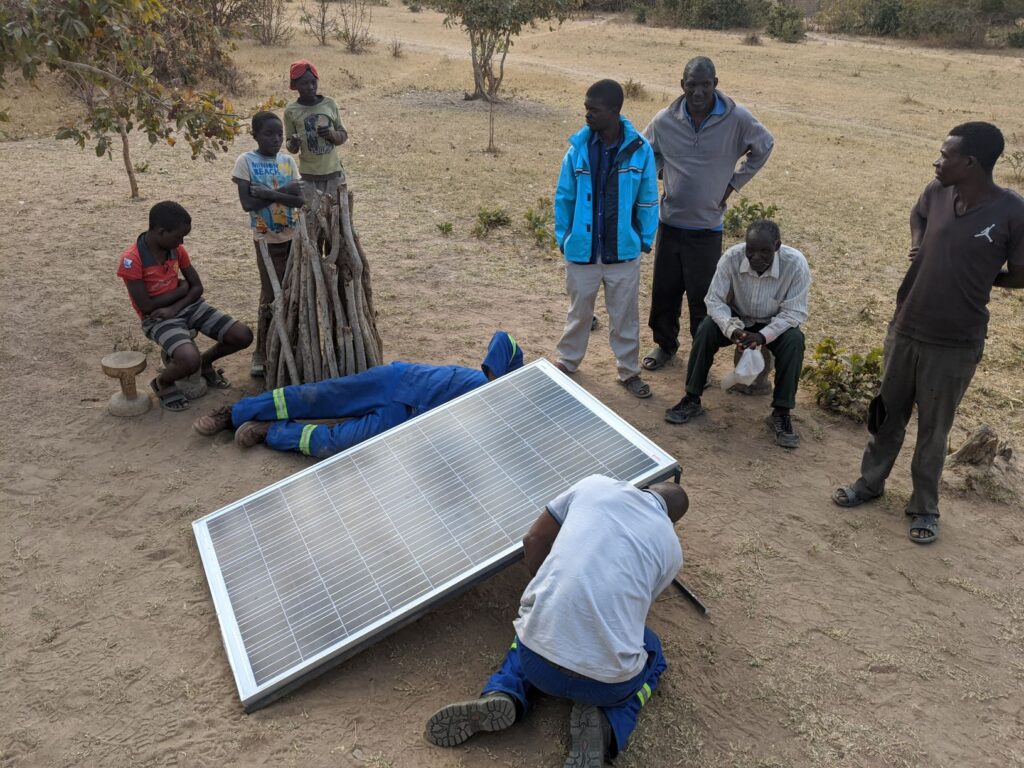
During two of our four installations, many people gathered to see what we were doing.
Meals were cooked and shared, always centering on nshima, a Zambian staple made from maize.

You might wonder who paid for the diesel fuel to get us to the villages—our Land Cruiser has two tanks—and for the solar panels and systems.
You did.
That is, you and others did, through the WELS Africa Special Projects Fund, one of many projects you can learn about in the Home and World Mission Projects Fund booklet. Lutheran Women’s Missionary Society (LWMS) and the WELS Mission Office prepares the booklet.
If you look up the Africa Special Projects Fund, you read, “There are many other project requests across Africa that enhance our gospel ministry efforts. One particular need is to identify and fund volunteers who can work temporarily in our mission fields. Project requests include improving communication, publications, materials, and ministry tools.”
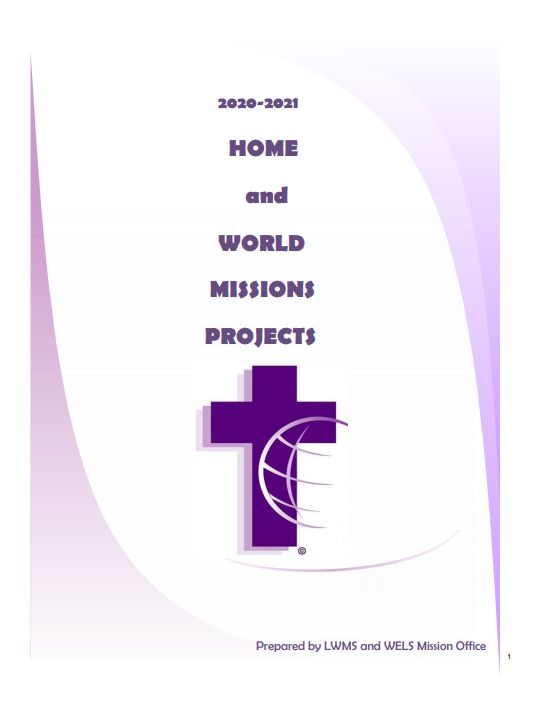
Now you know one example of such materials and ministry tools. It is hard for a pastor to communicate with other pastors, for example, when he cannot easily charge his cell phone.
Likewise, when he was at seminary, an LCCA pastor got a laptop with many biblical resources. But unless you can charge your laptop, how can you use it? How can you study for post-seminary classes in our new African Confessional Lutheran Institute (CLI)?
The Projects Fund booklet has dozens of worthy projects. Perhaps you are part of a WELS school group, men’s group, or women’s group. Over time, you could pool your funds and give to a project of your choosing: giving teamwork!
Such projects also involve teamwork on the receiving end. If you give to the Africa Special Projects Fund, for example, you don’t get to direct exactly where offerings go. Maybe they will go to solar panels. Maybe they will go to CLI, or somewhere else more needed.
You might not know until the last day how you helped—until you cross “the Jordan River,” as some hymns picture it.
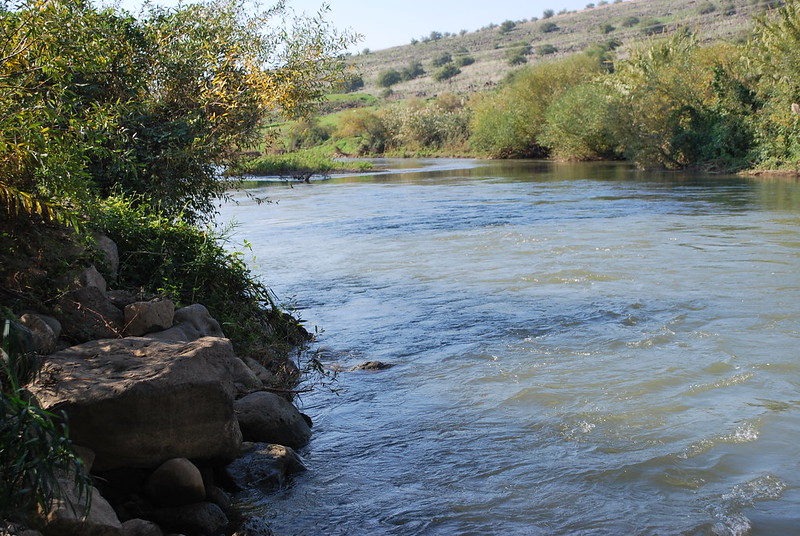
Imagine the scene, in the final Promised Land. You hear the most royal, beautiful voice say (Matthew 25:40), “Truly I tell you, whatever you did for one of the least of these brothers and sisters of mine, you did for me.”
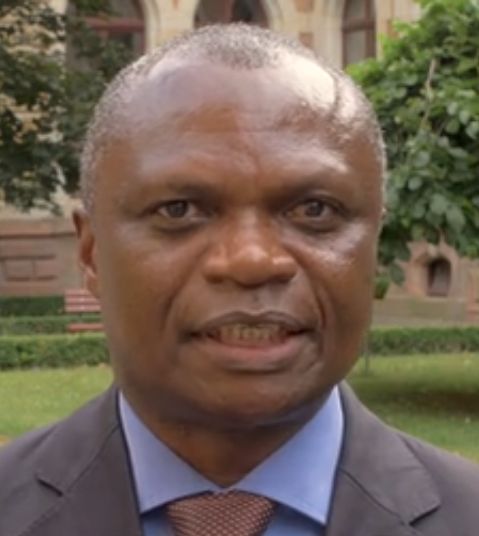
But even now, here is a voice for teamwork you can overhear. Rev. Davison Mutentami wrote this to our Operations Director, Stefan Felgenhauer. Pastor Mutentami, chairman of the Lutheran Church of Central Africa — Zambia Synod, emailed about this solar project:
“Empowering pastors is and will remain my dream.
“Please go ahead and implement the project. Don’t hesitate sir. God bless you for considering the vulnerable servants of God.”
Rev. Dan Witte lives in Zambia and coordinates Formal Continuing Education programs for the CLI
Please pray for those working in fields that are ripe for harvest. Share their story, engage with future news and receive updates. Learn more about our mission fields in Africa and how the Holy Spirit is working faith in people’s hearts at https://wels.net/serving-others/missions/africa

